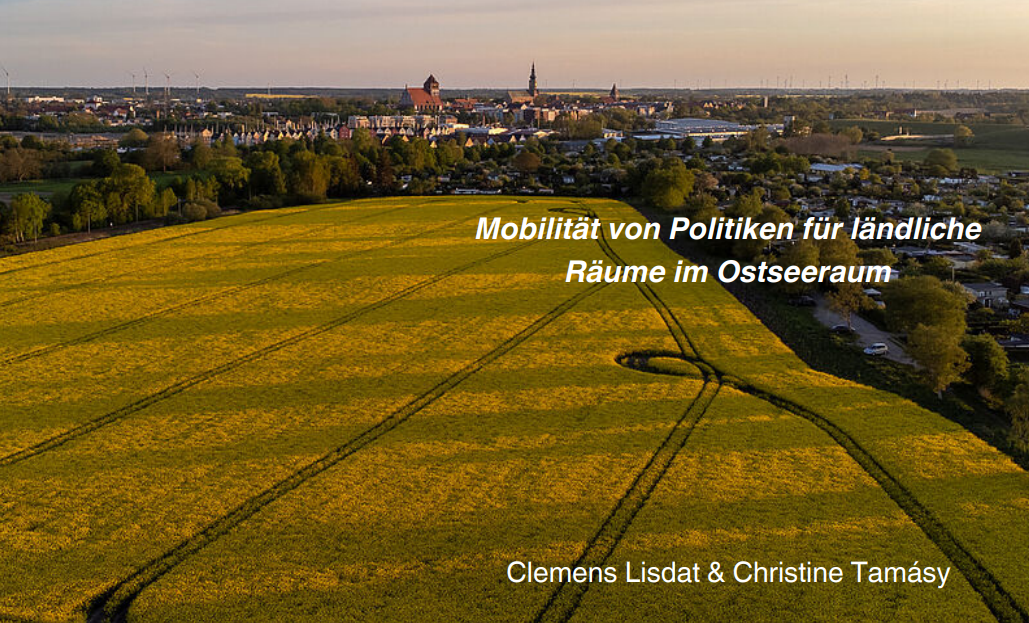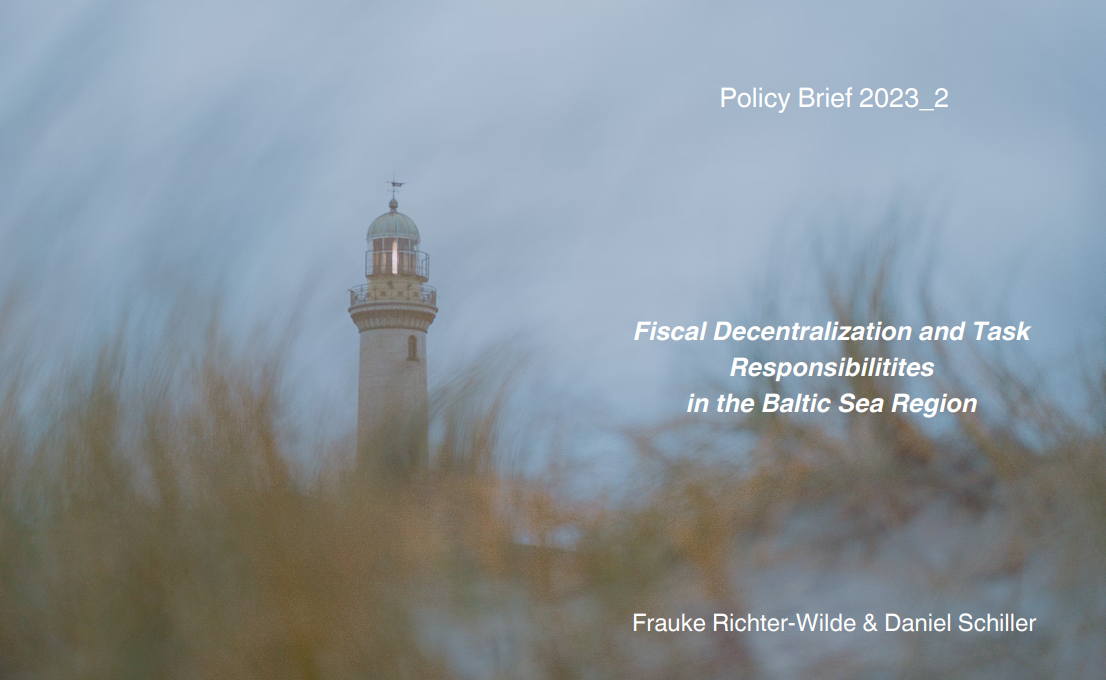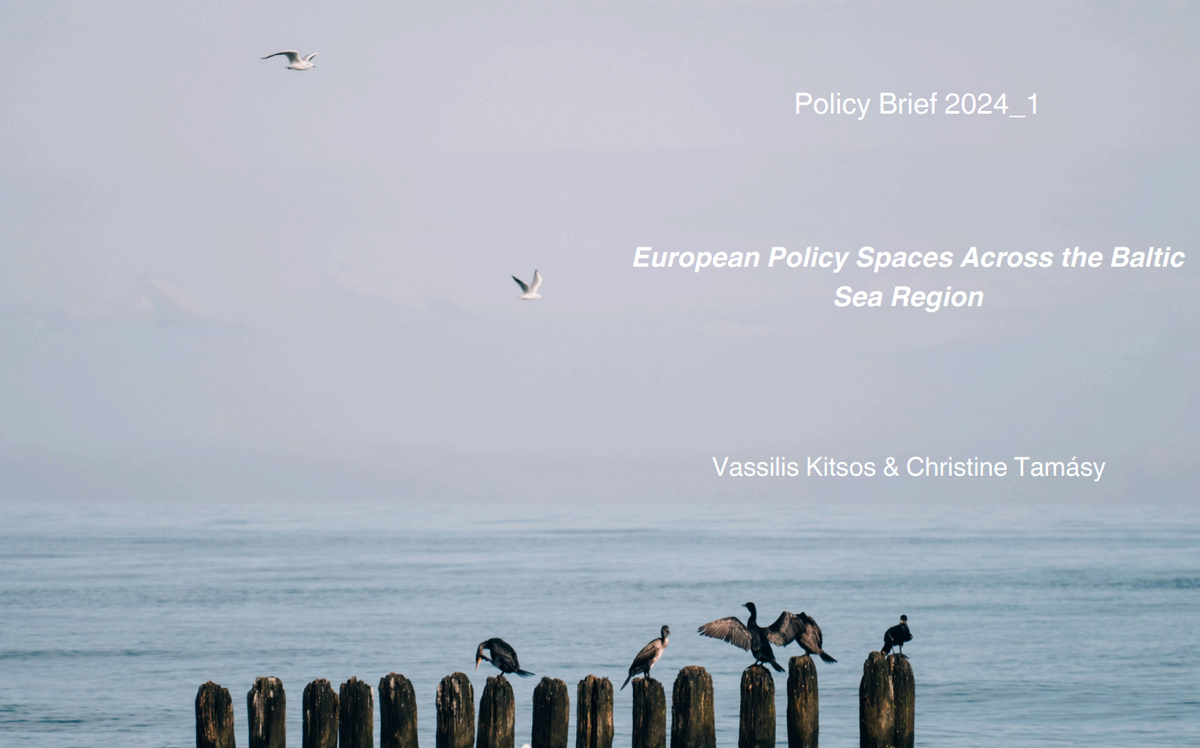Innovations and Policy Mobilities in the Rural Baltic Sea Region: Services of General Interest, Financing Systems and Entrepreneurship
Innovations and Policy Mobilities in the Rural Baltic Sea Region: Services of General Interest, Financing Systems and Entrepreneurship
Since 2009, increasing the innovation potential of rural areas has been a particular focus of the "Innovation" policy area of the EU Strategy for the Baltic Sea Region. In this context, the policy pays particular attention to promoting business and science in order to open up innovative economic sectors through the transfer of knowledge, among other things, and thus strengthen competitiveness in the long term. Complementing this, the Baltic Sea Strategy's "Health" policy area supports concepts and initiatives that develop the public service structures necessary for a prosperous region. They ensure both the health of the population and the minimization of social problems caused by diseases. The cross-regional initiatives for regional development of the EU and the Council for the Baltic Sea States are supported by a wide range of national initiatives. In Germany, for example, the „Gleichwertige Lebensverhältnisse“-Commission was established in 2018 to advise the German government on measures to reduce structural disparities and create equal living conditions in structurally weak regions. In Estonia, on the other hand, the e-society approach was launched, which enables resource-efficient and universal access to government administrative tasks by means of innovative information technologies. Both the individual initiatives and the very different solutions associated with them illustrate the complexity of a transformation process that not only appears spatially fragmented, but also reveals social and cultural differences in solving said structural problems.
Focusing on best practice models in the Baltic Sea region, the subproject examines the effects of innovations on the transformation of structures in services of general interest and regional development in the context of the goals formulated by politics and societies. In this context, financing systems for regional development, innovation diffusion in health care as part of services of general interest, rural entrepreneurship with a focus on social entrepreneurship, and the transferability of successful policy concepts (policy mobility) for rural regional development are analyzed. Due to diverging progress in the adaptation of innovations, the states of the Baltic Sea Region are in different phases of rural transformation processes. Accordingly, transfers of policy approaches within and between the countries of the Baltic Sea Region will be explored.
Accordingly, four areas will be highlighted in which current transformations of the rural Baltic Sea region are particularly evident:

![[Translate to English:] Photo by Visual Stories || Micheile on Unsplash](/storages/uni-greifswald/_processed_/c/a/csm_1_Aufgabenverantwortung_und_Finanzierungssysteme_ec1603ad86.jpg)
![[Translate to English:] Photo by Berrmix Studio on Unsplash](/storages/uni-greifswald/_processed_/e/7/csm_2_Diffusion_von_Innovationen_bdf17bc7e9.jpg)
![[Translate to English:] Photo by Austin Distel on Unsplash](/storages/uni-greifswald/_processed_/2/c/csm_3_Rurales_Entrepreneurship_c1a096303d.jpg)
![[Translate to English:] Photo by britt gaiser on Unsplash](/storages/uni-greifswald/_processed_/f/3/csm_4_Policy_Mobilities_2a48fe135a.jpg)



